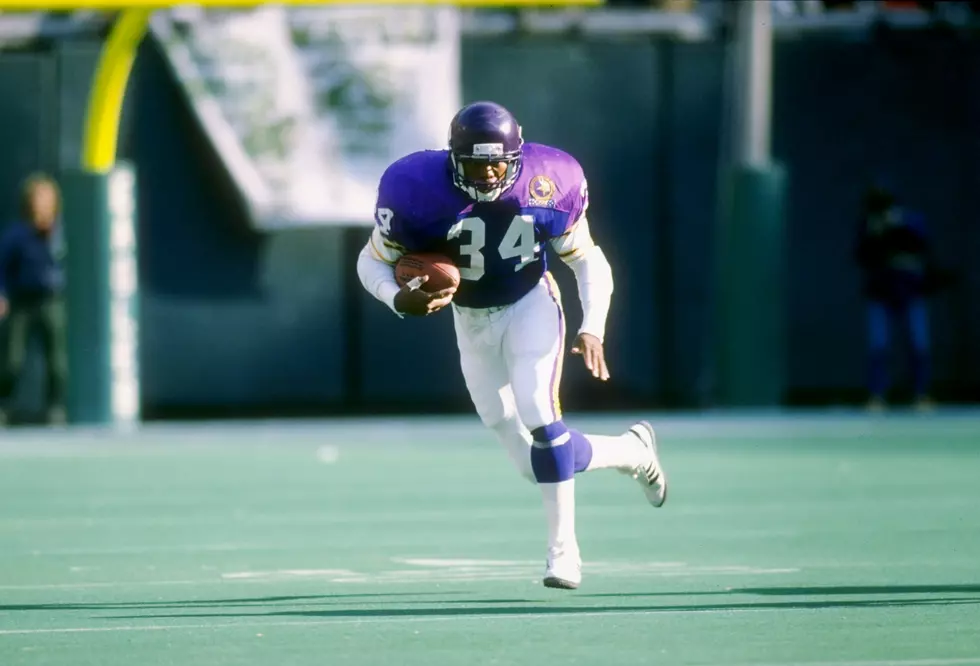
Zach Williams on His Walker Hayes Duet + Why He Wrote His Life Stories For ‘A Hundred Highways’
There's only one song Zach Williams didn't have a hand in writing on his new album, A Hundred Highways: "Jesus' Fault," a duet with Walker Hayes, which Hayes co-wrote with Michael Farren — a mutual collaborator of theirs — about two years ago.
"I was on the bus one night, and I get a text from [Farren] ... he sends me this demo and it was just a work tape. I was so intrigued by the title. Like, what's Jesus' fault? I gotta hear this," Williams recounts to Taste of Country.
It's uncommon for Williams to cut songs he didn't write — he likes to sing from personal experience — but Hayes' story parallels his own in many ways. Both men have chronicled their stories of addiction, recovery and redemption in their music; both frequently sing about their experience of finding Christianity and a relationship with Jesus, after taking long, tumultuous journeys toward faith. So when Williams heard the opening line of the song that Hayes and Farren had written — "The Bible by the bed ain't a coaster no more / It's still got some rings from the bottles before" — he knew it was a line he could sing.
"I just remembered when I quit my band and started going to church, all my friends, they couldn't understand what was going on in my life," he says. "And I didn't have an explanation, other than, you know, 'Don't blame me. Blame Jesus.'"
Williams kept the song in his back pocket for about a year — the pandemic was in full swing, and everything, including his album-making process, was moving slowly — but when it was finally time to cut it, he called Hayes and floated the idea of making one lyrical change in the second verse.
"[It] talked about the relationship he had with his father. And I didn't have that relationship. So if there was anything I wanted to rewrite, it would be that lyric," Williams says. "And Walker explained to me that his father had passed away that year, and it was a really important lyric to him."
Williams understood. He decided to go ahead and record the song, send it over to Hayes and see if he wanted to sing the second verse. Hayes cried when he heard the way the song turned out — "It's everything I wanted to say. You guys killed it," Williams remembers him saying — and he sings that second verse in the song, and appears in the "Jesus' Fault" music video.
The careful, diaristic lyrical specificity Williams strove for in "Jesus' Fault" is just one example of what a personal album A Hundred Highways is. It's centered around his long, eventful journey towards finding Jesus. Even the album title is a meditation on that journey; Williams borrowed it from a line in the chorus of "Looking for You," a song he points to as the heart of the record.
Williams hasn't always written so autobiographically. Before becoming a Christian artist, he says, he used to sometimes write more character or story-based songs.
"But I've had so much that I wanted to say over the last few years — things that God's done in my life — that I try now to write from this season, this personal place," he explains. Williams often writes his songs to be geared toward people who are going through the same challenges and facing the same questions that he once did, he adds.
"My hope is that somebody else is gonna hear the same thing I heard in a song, and it'll change their life. That's really the goal with writing this stuff," he goes on to say. "... One thing I know that I've learned is that Jesus is the only one that can fix it. And so I'm just trying to share that with my listeners as much as I can."
Ironically, the more Williams has zoomed in on the specific lyrical themes he wants his songs to convey, the more he's broadened his sonic reach. A Hundred Highways is rangier than anything he's released before, with threads of Southern rock, gospel, country and much more running through the song. Bluesy, twangy barn-burners like the opening track "Big Tent Revival" co-mingle with gospel tracks such as "Like a Billy Graham Revival" and "Flesh and Bone (We Remember)," so fully realized as worship that Williams and his band take communion with their audience during the encore of his live show.
Meanwhile, he wrote and recorded with some of the highest-profile Nashville songwriters and musicians for this album, embracing more elements of country and Americana than in any previous project. Part of Williams' ability to do that came from his Grammy-winning 2019 hit duet with Dolly Parton, "There Was Jesus," a collaboration that raised his profile in the country industry.
But just as much of A Thousand Highways' sonic depth and nuance came from the simple fact that he had years to live with most of its songs before the record came out. A three-year break between albums, thanks in part to the COVID-19 pandemic, gave him the chance to plumb the depths of each song and tease out all its stylistic possibilities.
"We just didn't put too much pressure on it," he says of the album-making process. "I feel like there was a lot more freedom to just be creative on this record, and I feel like I was able to hit about every genre of music that I'd grown up with as a kid, from bluegrass to gospel to country to rock to blues. I feel like we've got a little bit of everything, across the board."
See the Top 50 Country Duets of All Time!
More From KRFO-FM










